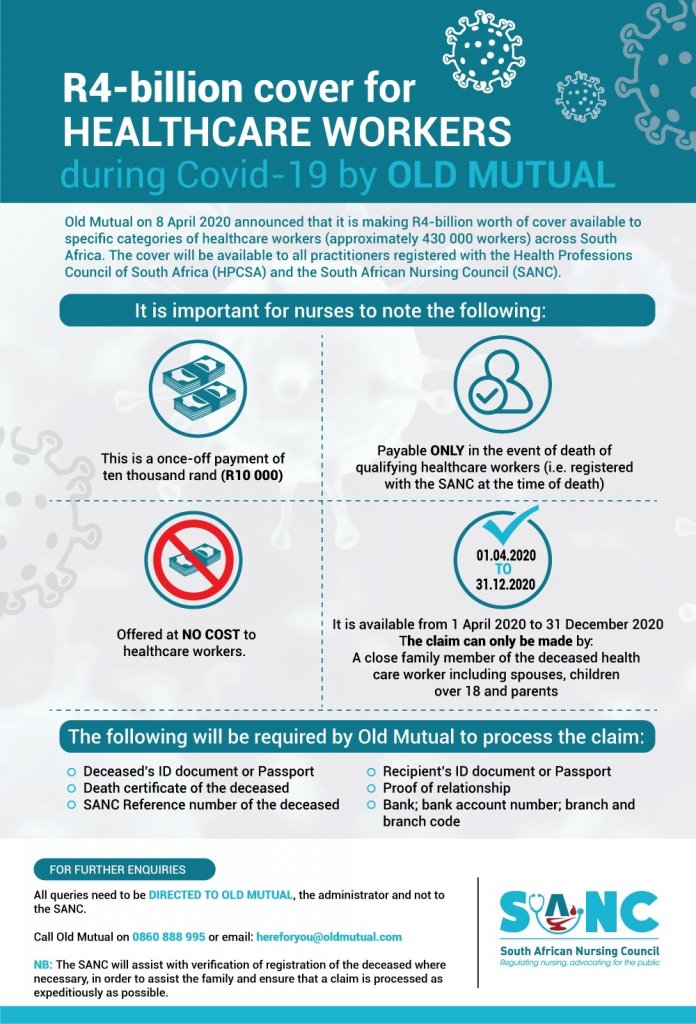11 December 2019
| TO: |
Nursing Education Institutions |
| |
Nursing Stakeholders |
South African Nursing Council Examination Schedule – 2020
Attached is the Examination Schedule for 2020
Kindly take note of the following requirements applicable to the Council examinations:
1. The closing date for the examinations should be strictly adhered to and no exceptions or allowances will be made to extend these dates.
2. Only registered learners will be eligible for an examination: The Head of the Nursing Education Institution (NEI) must ensure that all learners are registered with the Council within the prescribed period. Foreign applicants apply as individuals though will have to adhere to the prescribed period.
3. Candidates will not be registered for an examination with only an identity number. Council reference numbers are needed in all cases. Please follow up with the Council Registration department first, if learners are not registered for the course before registering candidates for an examination.
4. The Council will only process applications for entry into a Council examination that meet the following requirements:
a) The Examination Application Form is completed in full, accurately and signed by the relevant person/s. The surname and given names must be those appearing in the identity document.
b) All the required documentation to be included.
c) There is proof of payment of prescribed examination fee into the Council’s bank account; such payment must be done by the Nursing Education Institution (NEI) (group payment) and not by learners, except for foreign candidates.
Banking details are as follows:
Name of Bank: First National Bank
Account number: 51425166282 (Current Account)
Branch: Corporate Core Banking – Pretoria
Branch code: 253 – 145
Reference: NEI S-number followed by the type of fee code ‘EXAMFEE’
The correct reference must appear on all deposits to expedite the processing of your payment. The code ‘EXAMFEE’ must only be used for payment in respect of examination fee. This code must not be used for any other types of payment. Here is an example of what a correct reference will look like for an NEI with S-number S12345:
S12345EXAMFEE
NB: The Head of the NEI must ensure that payment of fees by their Provincial Department or Head Office is made separately for each NEI and for each specific examination.
Provincial bulk payments without specifications create administrative challenges and cause a delay in processing of the applications.
5. Only those candidates that have been issued an examination timetable/number will be eligible to write a Council examination.
6. All practical MARK SHEETS must be submitted to the Council by Registered mail/courier by the end of the month in which the examination is written. If the PRACTICAL MARK SHEETS in SANC format are not submitted on time, the examination results will be published without the practical marks, hence qualification certificate will not be issued to the affected candidates.
7. The Council requests Invigilators not to enclose the practical mark sheet or any other documents with the Examination package.
8. The Council reserves the right to cancel an examination reflected on the schedule if there are insufficient candidates for such an examination.
9. The Council request the NEI’s to inform all their candidates of the outcome of the examination results once published. No examination results will be given out telephonically by the Council. However, candidates will receive results via text messages (SMS).
NB: Examination fees are non-refundable according to Regulation regarding fees and fines payable to the South African Nursing Council (Regulation No.170 of 8 March 2013)

